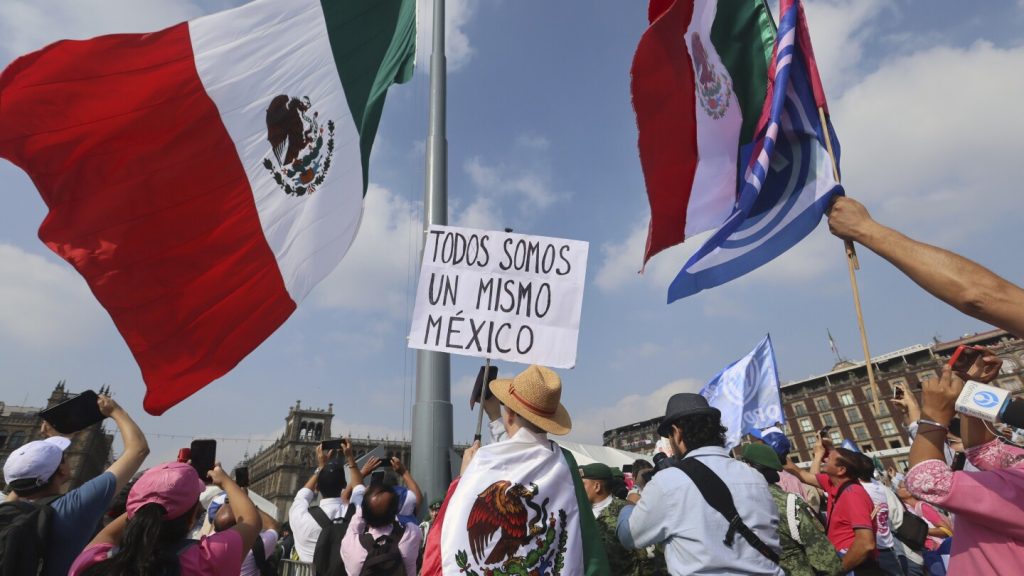Mexicans are preparing to cast their votes in historic elections on Sunday, with key considerations including gender, democracy, and populism. The country’s path forward will be determined through the election of its first female president, marking a significant milestone in a nation known for its “macho” culture. The election will be the largest in Mexico’s history, with over 20,000 congressional and local positions up for grabs. However, the lead-up to the election has been marred by cartel violence, as criminal groups have used the opportunity to exert power, resulting in the deaths of over 20 political candidates this year.
The leading candidates in Mexico’s presidential election include Claudia Sheinbaum, the former mayor of Mexico City, who has maintained a comfortable double-digit lead in polls. She is expected to continue the populist policies of current president Andrés Manuel López Obrador and is backed by his ruling Morena party. Opposition senator and tech entrepreneur Xóchitl Gálvez represents a coalition of parties opposed to López Obrador, though she has not generated significant enthusiasm for her campaign. A third candidate, Jorge Álvarez Máynez, has focused on capturing the youth vote but has struggled to gain traction.
President López Obrador’s influence looms large over the election, despite not being on the ballot. His administration has been marked by efforts to combat corruption, but critics argue that his attacks on the judiciary and reduced oversight have eroded Mexican democracy. While López Obrador remains popular among certain segments of the population, his presidency has sparked large protests from opposition groups. The election is seen as a test of his political legacy and the lasting impact of his Morena party beyond his tenure.
Mexico’s elections are scheduled for June 2, with voters selecting new leaders for various positions, including the president, senators, congressional representatives, and local government officials. The highly anticipated presidential election will determine the country’s leadership for the next six years. Despite the focus on the presidential race, other positions at various levels of government will also be decided by voters.
The campaign cycle leading up to the elections has been marred by violence, as criminal groups have exploited the political process to expand their influence. López Obrador’s approach of addressing root causes of violence has not been effective in reducing homicide rates, and his government has faced criticism for its handling of security issues. Cartels view elections as an opportunity to advance their interests, resulting in targeted attacks on political figures. The violence has been particularly severe in states where criminal groups are vying for control.
The possibility of electing Mexico’s first female president represents a significant step forward in a country grappling with high levels of gender-based violence and gender disparities. Despite a deeply entrenched culture of male chauvinism, there has been a concerted effort to increase female representation in politics, resulting in a more balanced gender split in the Congress and a rise in the number of female governors. Both leading female candidates, Sheinbaum and Gálvez, have pledged to address gender-based violence and promote gender equality if elected. The outcome of the election will not only shape Mexico’s future but also serve as a reflection of its evolving political landscape.















